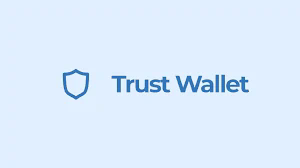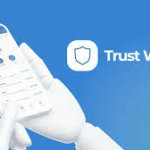An In-Depth Analysis of Trust Wallet: A Comprehensive Guide to Understanding Cryptocurrency and Blockchain Technology
### Introduction
In an era dominated by digital transformation and technological innovation, the rise of cryptocurrencies has fundamentally reshaped the financial landscape. Among the myriad of digital wallets available today, Trust Wallet stands out as a prominent player in the cryptocurrency ecosystem. Released in 2017 and acquired by Binance in 2018, Trust Wallet has positioned itself as a user-friendly and secure mobile wallet for managing a wide range of cryptocurrencies and tokens. This article delves into the intricate workings of Trust Wallet, exploring its features, benefits, security protocols, and its role in the broader context of blockchain technology and decentralized finance (DeFi).
### Understanding Trust Wallet
#### 1. The Origin of Trust Wallet
Trust Wallet was founded by Viktor Radchenko and quickly gained popularity for its simplicity and usability. The core philosophy behind the wallet is to provide a safe and intuitive interface for users to manage their digital assets without sacrificing security. Post-acquisition by Binance, Trust Wallet has integrated various features that enhance its functionality, supporting multiple blockchains and enabling seamless transactions across different networks.
#### 2. Features of Trust Wallet
##### a. Multi-Currency Support
One of the standout features of Trust Wallet is its support for a vast array of cryptocurrencies. Users can store, send, and receive tokens from multiple blockchain networks such as Ethereum, Bitcoin, Binance Smart Chain, and many others. This multi-currency functionality allows users to manage their diverse portfolios conveniently.
##### b. Decentralization and Ownership
Trust Wallet is a non-custodial wallet, meaning that users have complete control over their private keys and funds. The keys are stored locally on the user’s device, thus minimizing the risk of hacks associated with centralized exchanges. This ownership model empowers users and aligns with the fundamental principles of cryptocurrency.
##### c. Built-in DApp Browser
The built-in decentralized application (DApp) browser enables users to access a wide range of DeFi applications, games, and NFT marketplaces directly from the wallet. This integration allows users to interact with various blockchain-based services seamlessly, fostering a holistic approach to cryptocurrency management.
##### d. Staking Capabilities
Trust Wallet allows users to stake certain cryptocurrencies, enabling them to earn rewards by participating in the network’s consensus mechanism. This feature enhances the wallet’s utility, providing opportunities for passive income generation.
##### e. Cross-Platform Availability
Available on both iOS and Android, Trust Wallet caters to a larger audience. The mobile-first design appeals to users who prefer managing their assets on-the-go while still ensuring robust security measures.
### Security Protocols in Trust Wallet
#### 1. Private Key Management
Trust Wallet implements a locally stored private key architecture. Unlike centralized wallets that store keys on their servers, Trust Wallet ensures that private keys do not leave the user’s device. This practice significantly reduces the likelihood of unauthorized access and enhances security.
#### 2. Biometric Authentication
The wallet supports biometric authentication methods, such as fingerprint and facial recognition. This adds an extra layer of security, allowing only authorized individuals to access the wallet.
#### 3. Backup and Recovery Options
Trust Wallet provides users with a 12-word recovery phrase upon wallet creation, which can be used to restore access in case the device is lost or damaged. Users are advised to store this phrase securely, as it is crucial for recovering funds.
#### 4. No Registration Required
Trust Wallet does not require personal information or registration, enabling users to maintain anonymity. This aligns with the decentralized ethos of cryptocurrency, providing privacy to users.
### Understanding Blockchain Technology and DeFi
#### 1. Blockchain as a Technological Foundation
Blockchain technology serves as the backbone of cryptocurrencies. Its decentralized, distributed ledger architecture ensures transparency and immutability, addressing issues related to trust and authenticity in transactions. Trust Wallet leverages this technology to facilitate secure cryptocurrency transactions and interactions with DApps.
#### 2. Decentralized Finance (DeFi)
Decentralized Finance has emerged as a revolutionary concept within the cryptocurrency sphere, aiming to recreate traditional financial systems using smart contracts. DeFi platforms enable users to lend, borrow, trade, and earn interest on their assets without intermediaries. Trust Wallet plays an integral role in the DeFi ecosystem by providing users access to various DeFi applications directly from their wallets.
### The Future of Trust Wallet in the Crypto Ecosystem
#### 1. Growing User Base and Adoption
As more individuals and institutions adopt cryptocurrencies, the demand for secure and user-friendly wallets like Trust Wallet is likely to surge. The wallet’s focus on simplicity and security positions it favorably in a competitive market.
#### 2. Expanding Features and Functionality
Continuous development and integration of innovative features will be vital for Trust Wallet to maintain its relevance. Enhancements such as advanced trading options, enhanced staking opportunities, and partnerships with DeFi protocols could bolster its appeal.

#### 3. Interoperability and Cross-Chain Transactions
As the blockchain ecosystem expands, interoperability between different networks will become increasingly essential. Trust Wallet could lead the charge in facilitating cross-chain transactions, allowing users to seamlessly transfer assets across various platforms.
#### 4. Education and Awareness Initiatives
Given the intricacies of cryptocurrency and blockchain technology, user education will play a crucial role in the long-term success of Trust Wallet. By providing educational resources and support, Trust Wallet can empower users to navigate the complexities of the crypto space confidently.
### Conclusion
Trust Wallet has emerged as a valuable tool in the cryptocurrency landscape, merging security, usability, and functionality. As the adoption of cryptocurrencies continues to grow, Trust Wallet is well-positioned to meet the evolving needs of users while contributing to the broader narrative of decentralized finance and blockchain technology. Through continued innovation and a commitment to user education, Trust Wallet can further solidify its status as a leading cryptocurrency wallet in an ever-changing digital economy.
By prioritizing security, maintaining user ownership of assets, and embracing the principles of decentralization, Trust Wallet is not only a wallet but a crucial participant in fostering the future of finance.


